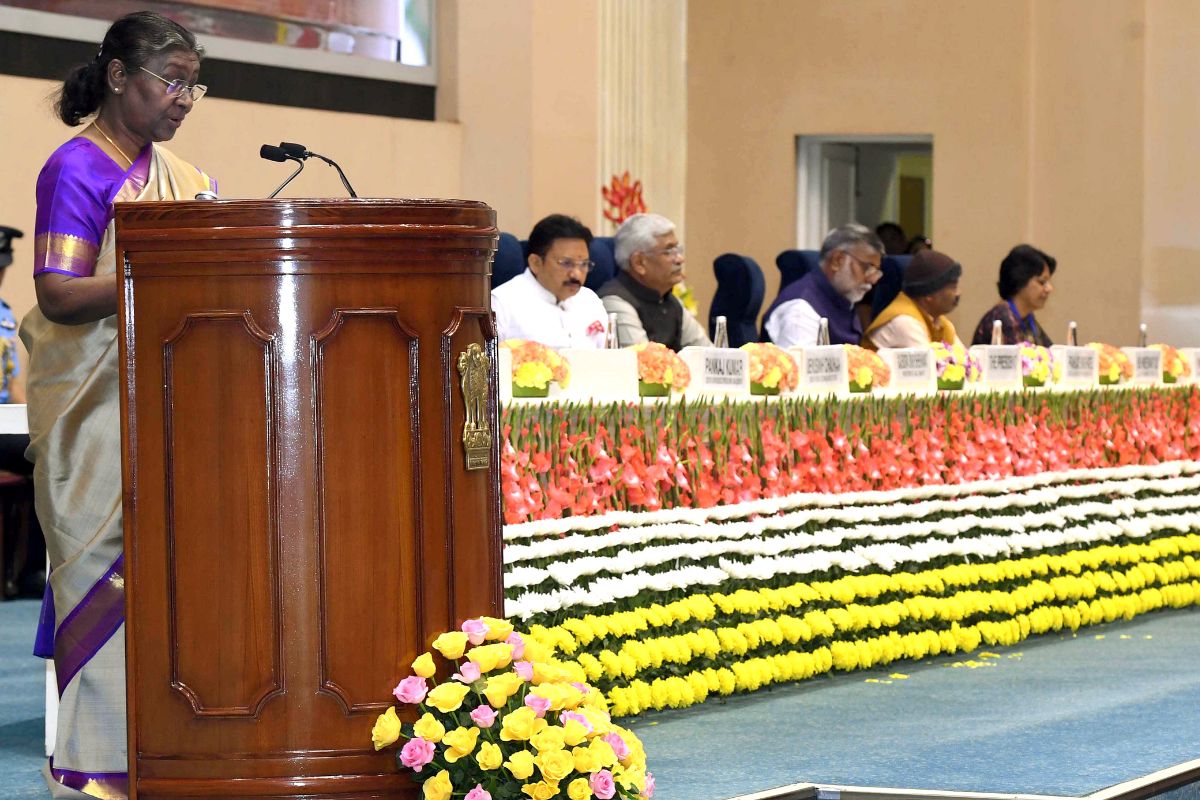Prez Murmu to inaugurate global conference on Unani medicine on Tuesday
Every year, the 11th of February, the birth anniversary of eminent Unani physician, educator, and freedom fighter Hakim Ajmal Khan, is commemorated as Unani Day.
About 18 per cent of the world’s population resided in India, but only 4 per cent of the world’s water resources were available here.

President Droupadi Murmu graced the launch of 'Jal Shakti Abhiyan: Catch The Rain -2023' (ANI)
President Droupadi Mumru today said making India a ‘clean nation’ was not the government’s responsibility alone but the collective responsibility of all citizens.
She said that ‘Jal Shakti’ could not be fruitful without ‘Nari Shakti’. United power of both these forces was needed for social prosperity, she said, adding the ‘Jal Jeevan Mission’ aimed to empower women.
Advertisement
Presenting the Swachh Sujal Shakti Samman 2023 and launching the ”Jal Shakti Abhiyan: Catch The Rain -2023” in New Delhi, President Murmu said that water and sanitation hold a special place in the life of every citizen. But these issues affect women the most, as generally, it was the responsibility of women to arrange drinking water for their home.
Advertisement
In villages, they had to walk long distances to get drinking water. Arranging for drinking water not only took a lot of their time but also put their safety and health at risk. Usually, school/college-going girls were also engaged in arranging water along with their elders, which hindered their studies, she noted.
To overcome these problems, the government has taken special measures. It was providing clean drinking water and sanitation facilities through initiatives such as Jal Jeevan Mission and Swachh Bharat Mission. She was happy to note that today more than 11.3 crore households were getting potable water from the tap.
She said that the women, who earlier used to spend time fetching water, were now utilising that time in other productive works. Clean tap water has also shown significant improvement in the health of infants who used to fall prey to water-borne diseases like diarrhea and dysentery due to polluted water.
Stressing the need of water conservation and water management, the president said it was a well-known fact that in India, water resources were limited and its distribution was also uneven.
About 18 per cent of the world’s population resided in India, but only 4 per cent of the world’s water resources were available here. Moreover, most of this water was received in the form of rain, which drained into rivers and seas. That’s why water conservation and its management was a very important topic for India.
”Today we are more dependent on institutional means for water supply than traditional means. But along with using modern techniques for sustainable water supply, the revival of traditional methods of water management and water harvesting is the need of the hour. All stakeholders should work together for water conservation and its management. We need to make this effort not only for ourselves but also for the healthy and safe future of our coming generations,” she added.
Advertisement